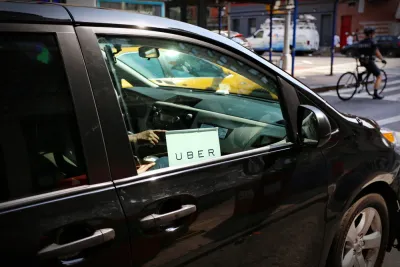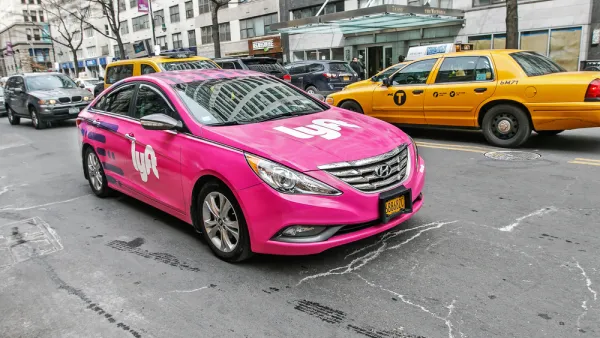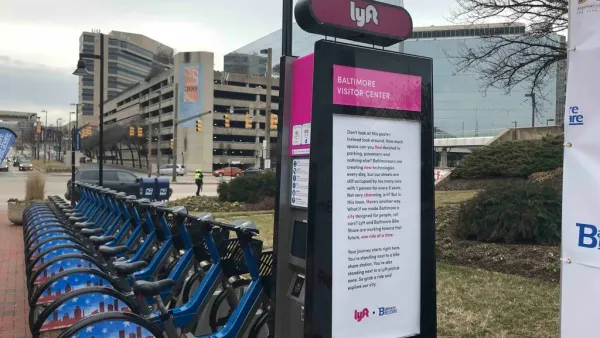A judge ruled against California's Proposition 22, which let ride-hailing and delivery businesses classify workers as independent contractors and discouraged unionization efforts.

Margot Roosevelt and Suhauna Hussain report on a decision that reopens the debate on the gig economy in California and could have lasting repercussions as ride-hailing companies seek to fight regulation in other states. Last Friday, "a state Superior Court judge invalidated a 2020 ballot proposition that allowed Uber, Lyft, DoorDash, Instacart and other app-based businesses to classify their workers as independent contractors."
Historically, "California courts are often hesitant to overturn ballot measures because the move can be seen as challenging the will of the people." But "[i]n a lawsuit brought by the Service Employees International Union and several drivers, Alameda County Superior Court Judge Frank Roesch ruled that Proposition 22 is unconstitutional and unenforceable" because it "infringes on the power of the Legislature explicitly granted by the state Constitution to regulate compensation for workers’ injuries." According to Judge Roesch, "[b]y including language aimed at preventing drivers from unionizing, the ballot measure also violates a constitutional provision that requires laws and initiatives to be limited to a single subject." Because "a ballot initiative cannot be amended after it is passed by voters, any unconstitutional provision renders it unenforceable."
"Uber and other gig economy companies spent more than $220 million last year in the nation’s costliest-ever ballot initiative campaign to exempt their drivers from a 2019 law, AB 5, requiring gig workers across many industries to be classified as employees with benefits such as minimum wage, overtime and workers’ compensation in case of injury." Uber plans to appeal the decision.
FULL STORY: Prop. 22 is ruled unconstitutional, a blow to California gig economy law

Analysis: Cybertruck Fatality Rate Far Exceeds That of Ford Pinto
The Tesla Cybertruck was recalled seven times last year.

National Parks Layoffs Will Cause Communities to Lose Billions
Thousands of essential park workers were laid off this week, just before the busy spring break season.

Retro-silient?: America’s First “Eco-burb,” The Woodlands Turns 50
A master-planned community north of Houston offers lessons on green infrastructure and resilient design, but falls short of its founder’s lofty affordability and walkability goals.

Test News Post 1
This is a summary

Analysis: Cybertruck Fatality Rate Far Exceeds That of Ford Pinto
The Tesla Cybertruck was recalled seven times last year.

Test News Headline 46
Test for the image on the front page.
Urban Design for Planners 1: Software Tools
This six-course series explores essential urban design concepts using open source software and equips planners with the tools they need to participate fully in the urban design process.
Planning for Universal Design
Learn the tools for implementing Universal Design in planning regulations.
EMC Planning Group, Inc.
Planetizen
Planetizen
Mpact (formerly Rail~Volution)
Great Falls Development Authority, Inc.
HUDs Office of Policy Development and Research
NYU Wagner Graduate School of Public Service




























